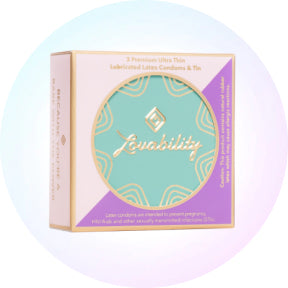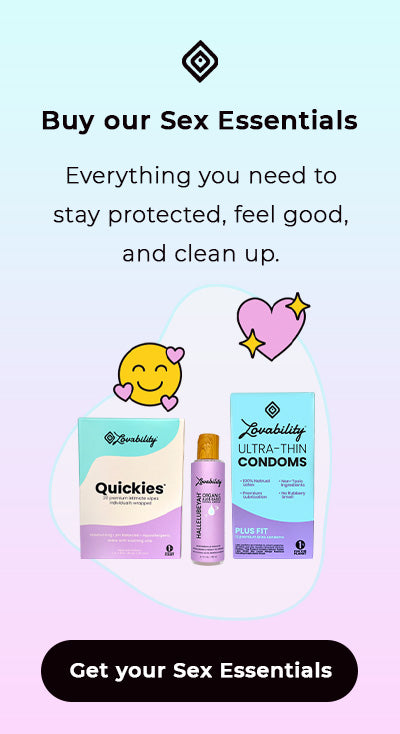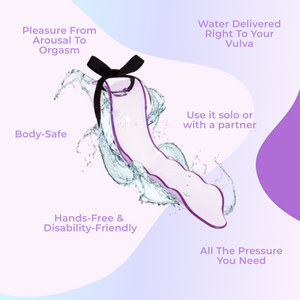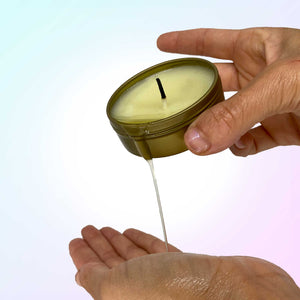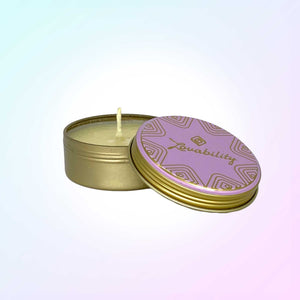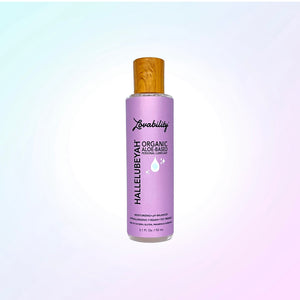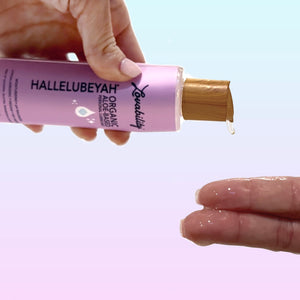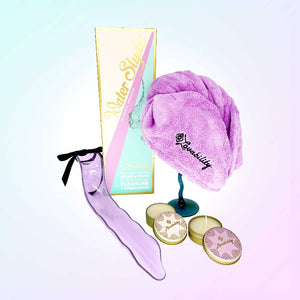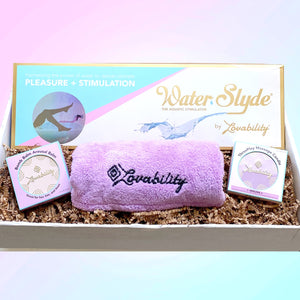You can use lube with condoms. Any condom can use water-based or silicone oil lubrication. Avoid using oil-based lubricants with latex condoms, such as lotions, vaseline, or oils. Oil can cause latex condoms to break down and may damage them. Oil-based lubricants can be used with non-latex condoms.
Which type should you purchase?
Consider the various types of lube available before shopping for the right one. There are several types of lube:
- Water-Based Lube
Water-based lubes are known as being "versatile" and can be used for almost any activity, even those involving silicone toys. Water-based lube could be used with both latex and non-latex condoms.
- Silicone-Based Oil Lube
Try silicone-based oil lube. It is similar to silk sheets for sensitive areas, and most people will not experience allergic reactions to silicone because it is hypoallergenic. This type of lube also lasts longer.
- Oil-Based Lube
We get that you don't want to reapply after you get started. This lube is the gift that keeps your going and going. Be aware, higher rates of infections such as bacterial vaginosis are linked to oil-based lubricants. Oil-based lubricants may also be associated with expensive sheets. Oil can stain clothing and sheets and is also not easy to clean up.
- Natural lube
Are you concerned about the ingredients in your products? There have been natural lubricants popping up over the last few years. However, there is some debate about what "natural oil" actually means.
How to use condoms and the lubricant
Once you have learned how to use a condom correctly, it will seem like second nature. Proper use will ensure that condoms don't break, leak, or slip off during sex.
Here are some main points to remember when using condoms, and below are more detailed instructions:
- Check the expiration date and choose a condom with a quality mark that indicates it is manufactured in an FDA approved facility.
- Keep your condoms away from direct sunlight.
- Make sure you use the correct lubricant, preferably silicone-based or water-based.
- By holding the condom's tip between thumb and forefinger, you can expel any air. This will allow you to keep semen in your condom.
- When the penis is hard (erect), roll the condom from the tip of your penis all the way down to the base.
- Use lubricant to coat the entire condom. If necessary, reapply during sex.
- It is essential to take the time to make sure that your condom fits appropriately. A rushed application can cause condom problems during sex.
- To prevent any leakage, hold the condom at the base of your penis when you pull it out.
- Never reuse a condom. Always start again with a brand new condom.
What is the reason that some people feel uncomfortable during sex?
If one of the partners is a female, she will produce natural lubricant when she's aroused. However, the amount will depend on each person and their body. Because everyone is different, no matter how aroused she is, she may not have enough natural friction lubricant. A gentle lubricant that is kind to both partners will make the experience more enjoyable all around.
What lubricant can be used with all condoms safely?
You can find out the exact ingredients of condoms by looking at their packaging. Water-based lubricants are compatible with all condoms and sex toys, and they are generally gentler to the body. A water-based lubricant will not cause infection, unlike an oil-based one that can trap bacteria in the genitalia.
Condom advantages
- Condoms protect against STIs and pregnancy.
- There are usually few side effects.
- Condom reliability can be high when used correctly.
- They are usually less expensive than other safer sex products.
- They are easy to use and only require a little practice to be used correctly.
- Condoms can be purchased without a prescription and are widely available.
- A female condom allows individuals to be protected if their partner refuses to use one.
- Condoms can delay ejaculation for some men as sensitivity is slightly less.
Condom disadvantages
- Condoms that aren't correctly lubricated can burst or rip.
- Some people may be allergic to condoms containing the spermicide Nonoxynol-9.
- Condoms are more likely to fail than contraceptive pills in preventing pregnancy, and this is due to improper use.
- Some people find it difficult to insert or remove a female condom.
- Sometimes, spontaneity can feel interrupted when getting a condom ready.
- Condom use can reduce sexual stimulation for some men and make it more difficult to reach climax.
People may believe that using both an external and an internal condom will provide additional protection, and this is false. It is not a good idea to use two condoms simultaneously.
Lube is essential
Lube helps reduce friction (skin contact, latex contact) massively and can transform the entire experience. Lubricants often enhance sexual activity by adding pleasant sensations to otherwise awkward situations. A reduced friction level helps to reduce the chance of a condom breaking or causing skin irritations, chafing, and breakage. Anal intercourse requires lubrication because, unlike the vagina, which has natural lubrication, the anus does not have as much coverage and, therefore, no lubrication.
Lubrication is essential for individuals who have never had anal penetration. Even though condoms are often pre-lubricated, it is still a good idea to use a lubricant for sex. Used directly on the penis shaft when using a male condom, you may add some lubricant to the condom tip to make it more pleasant for wearers. However, most lubricants should be applied outside of the condom to ensure the partner's comfort when the condom penetrates.
Why more lube is better than less
Whether your condoms are pre-lubricated or not, it is always a good idea for you to add some lube. Lubricants help prevent condoms from bursting during use and can also help to prevent irritation.
You must be careful about choosing a suitable lubricant that doesn’t affect the condom you have. You can use almost all types of condoms with a water-based lubricant. Silicone-based lubricants are less slippery than water-based ones and can last longer, but are more costly. Oil-based lubricants are not recommended for use with latex condoms, and oil breaks down latex, making condoms less reliable.
You should avoid using lubricants that contain oils, fats, or greases. This includes petroleum-based jelly hand or body lotions and cooking shortenings, as they can cause condoms to become fragile and easier to tear.
There are other possible adverse effects that lubricants can have on the body so always monitor how you feel afterward and make changes accordingly. It can be helpful to review the ingredients list when choosing which personal lubricant you should buy. Ask your pharmacist if you are not sure what personal lubricant you should choose. At Lovability, we feel it is essential you know what you're putting inside you or your partner's body and feel confident it’s only the safest thing. #BodySafe
Avoid at All Costs
You'll find many options when you go lube shopping, and there are warming and tingling options. This lube is fun to use, but you should be cautious about what you're buying.
Healthy vaginas should have a pH of between 3.5 and 4.5. Therefore, the lubricant you use should be at the same level.
Pay attention to what ingredients are listed. There are some names that you might want to avoid as they can cause inflammation or irritation.
- Non-Vegetable Glycerin
- Nonoxynol-9
- propylene glycol
- chlorhexidine gluconate
Avoid nasty and irritating chemicals such as parabéns, gluten, PEG's, benzocaine, or detectable nitrosamines.
FAQ Section:
Can condoms be bought with lube?
Yes, you can purchase both condoms and lube separately. Whilst they work best together, they can also be used separately from one another. Lube can be used with condoms. If you are using a condom made of latex, polyurethane, or polyisoprene, you should use a water- or silicone-based lube.
Are condoms too embarrassing to buy?
It can be awkward for some people to go into a store and buy condoms. However, buying condoms should not be embarrassing, and it means that you are being responsible and protecting your partner.
Is it legal to purchase condoms as a 13-year-old?
Condoms can be purchased at any age, and there are typically no restrictions on who can buy them. Check with your state to be sure. Even though some teens might be nervous about buying condoms for the first time, cashiers will sell condoms every day and it is perfectly normal.
More Articles You Might Love

Get To Know Your Vulva



